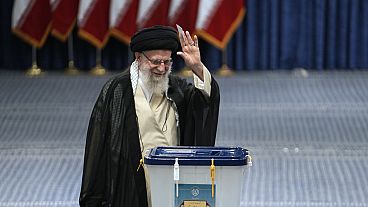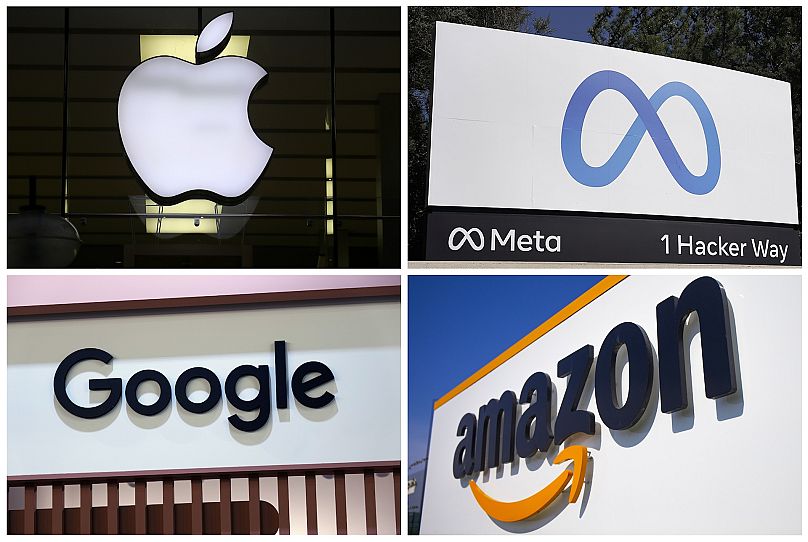GRANOLAS is an acronym coined by Goldman Sachs during the first European lockdown in 2020, representing the largest European companies by market cap at that time.
Mega-cap stocks have continued strong performance in 2024 amid geopolitical tensions. The Euro Stoxx 50 is up 9%, while the top 100 US stocks rose 19%. The elite European GRANOLAS saw a 16.6% average return, but the US's Magnificent Seven doubled that with 38%, driven by Nvidia's AI rally.
After a strong showing in 2023, mega-cap stocks worldwide have continued to perform well in 2024, providing a safe haven for investors amid ongoing geopolitical tensions and economic uncertainty.
The Euro Stoxx 50 index, which includes the 50 largest European companies, has increased by 9% since the beginning of the year. In comparison, the index of the 100 largest American stocks has surged by 19%.
Notably, both indices have outperformed their broader counterparts, with the Euro Stoxx 600 and the S&P 500 rising by 7% and 14%, respectively.
But what has occurred at the very pinnacle of these indices when looking at the biggest stocks in both sides of the Atlantic?
A useful comparison is between the elite European stocks, termed GRANOLAS, and the US tech giants, known as the Magnificent Seven.
For those unfamiliar with these names, GRANOLAS is an acronym coined by Goldman Sachs during the first European lockdown in 2020, representing the largest European companies by market cap at that time: GSK, Roche, ASML Holding, Nestlé, Novartis, Novo Nordisk, L'Oréal, LVMH, AstraZeneca, SAP, and Sanofi. As of late June 2024, these companies collectively boast a market cap of nearly €3 trillion.
The Magnificent Seven, comprising tech titans such as Microsoft, Apple, Nvidia, Alphabet, Amazon, Meta Platforms and Tesla, have a combined market cap of $15.8 trillion (€14.8 trillion).
GRANOLAS vs. Magnificent Seven: Performance comparison
Since the start of the year, the GRANOLAS have averaged a 17% return. Novo Nordisk, the Danish weight-loss drug maker, led the group with a 48% gain. ASML Holding, Europe's biggest semiconductor firm, followed closely with a 40% gain, and SAP saw a 32% increase.
The French personal care multinational company L'Oréal lagged, down 1.7%.
In contrast, the Magnificent Seven have averaged a 37% return, more than double that of their European counterparts. Nvidia led the charge with an extraordinary 150% gain, followed by Meta Platforms at 45%. Tesla was the only with a red sign, shedding 22% year-to-date.
The AI rally and semiconductor sector
However, when excluding Nvidia, the Magnificent Seven's average performance drops to 18.8%, only slightly higher than that of the GRANOLAS.
The substantial outperformance of the US stock market can be largely attributed to the extraordinary rally in Nvidia and other chipmaker stocks. Investor and analyst optimism about artificial intelligence's future and its potential to boost long-term productivity has driven significant gains in major AI chipmakers. Besides Nvidia, US semiconductor companies like Micron Technology, Applied Materials, and Broadcom have posted robust returns of 67%, 45%, and 44%, respectively, year-to-date.
Europe, apart from ASML, lacks a significant presence in the chipmaking industry and trails behind the US in the AI sector.
The combined market value of US semiconductor firms is around $6 trillion (€5.6 trillion), with Nvidia alone representing about half of this value. In contrast, the 59 European publicly traded semiconductor companies have a total market cap of €527 billion, roughly one-tenth of their US counterparts.
This disparity underscores the crucial role of AI and semiconductor companies in driving stock market performance, particularly in the United States, and highlights the challenges Europe faces in competing in this rapidly evolving sector.
The continuous optimistic outlook from investors and analysts on the potential of artificial intelligence to enhance long-term productivity has triggered substantial rallies in major AI chipmakers.
In summary, while Europe's GRANOLAS have shown commendable performance in 2024, they have been significantly outpaced by the US's Magnificent Seven, driven primarily by the explosive growth in the AI-driven rally from Nvidia.
If financial markets are telling us something about the economy, this highlights a critical area where Europe needs to bolster its capabilities to compete more effectively on the global stage.
















